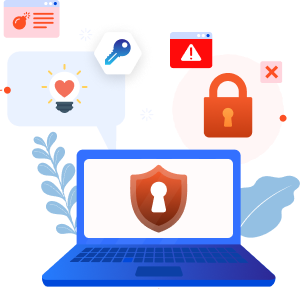Neuralstrikes keeps your Assets and your data safe from Cyberattacks, so you can focus on what matters most
“running your Business”










| Cookie | Duration | Description |
|---|---|---|
| cookielawinfo-checkbox-analytics | 11 months | This cookie is set by GDPR Cookie Consent plugin. The cookie is used to store the user consent for the cookies in the category "Analytics". |
| cookielawinfo-checkbox-functional | 11 months | The cookie is set by GDPR cookie consent to record the user consent for the cookies in the category "Functional". |
| cookielawinfo-checkbox-necessary | 11 months | This cookie is set by GDPR Cookie Consent plugin. The cookies is used to store the user consent for the cookies in the category "Necessary". |
| cookielawinfo-checkbox-others | 11 months | This cookie is set by GDPR Cookie Consent plugin. The cookie is used to store the user consent for the cookies in the category "Other. |
| cookielawinfo-checkbox-performance | 11 months | This cookie is set by GDPR Cookie Consent plugin. The cookie is used to store the user consent for the cookies in the category "Performance". |
| viewed_cookie_policy | 11 months | The cookie is set by the GDPR Cookie Consent plugin and is used to store whether or not user has consented to the use of cookies. It does not store any personal data. |


Hacking affects every business and area. Cybercriminals are particularly interested in the healthcare business. There is a plethora of private information on the dark web that may be harvested and then auctioned for millions of dollars. Cybercriminals are continuously searching for flaws in medical systems; thus, safety in healthcare is critical for anything from contact information and personal data to credit card numbers and bank details. Sadly, healthcare facilities have been an incredibly common target for attackers in recent times, making it more necessary than ever to follow strong cyber-security procedures to keep your data safe.
Cyber security concerns have been discovered in health facilities, local hospitals, and
pharmacies, with serious consequences. Installing ransomware is a popular technique of attack. When a healthcare institution’s database is breached, generally due to a worker clicking a link in a suspicious email, all patients’ files are kept hostage until a ransom has been paid. Malicious programs can appear in the email, text messaging, and websites specifically to target young and inexperienced individuals.

Before COVID-19, most colleges and universities had solid web security policies and
procedures in place to secure against cyber threats. However, after implementing
pandemic limitations and schools were forced to suddenly change their learning and teaching frameworks, quickly morphing into learning organizations, schools and colleges are forced to re-evaluate their network security strategies and take measures on their cybersecurity systems Many higher education institutions were caught off guard when the massive shift to online teaching and learning occurred. They learned the hard way that they were unable to protect students effectively, staff, and the educational establishment from its cyberattacks and the school’s intellectual property and data. Cybercriminals have a plethora of opportunities at colleges and universities.

Cybersecurity is a hot topic in the business world, and for good reason. As we become increasingly reliant on technology to conduct our day-to-day lives, businesses of all sizes are at risk of being hacked. In fact, according to Symantec’s Internet Security Threat Report, 43 percent of cyber attacks are aimed at small businesses. That’s why it’s so important for small business owners to take steps to protect their businesses from hackers. This webinar provides an overview of the cyber security threats facing small businesses and offers some tips on how owners can protect their businesses. By understanding the risks and taking some basic precautions, business owners can protect themselves and their businesses from cyber-attacks.
